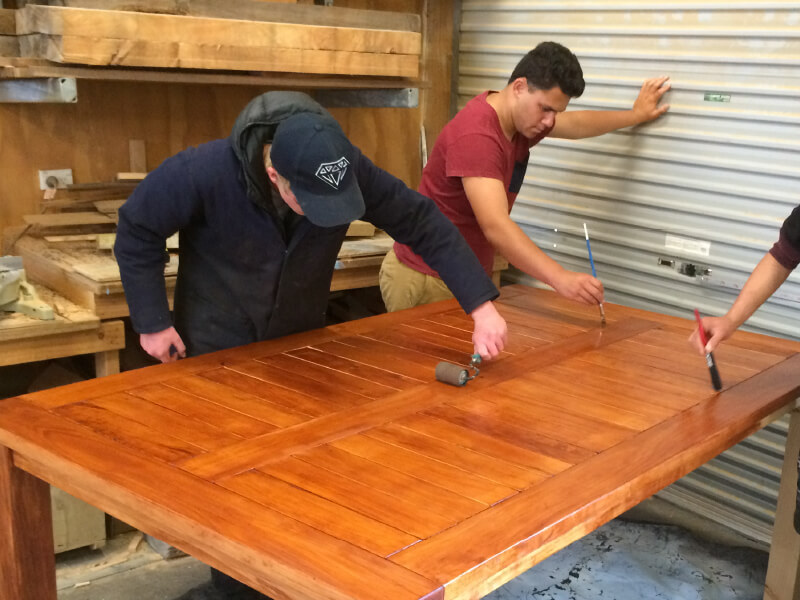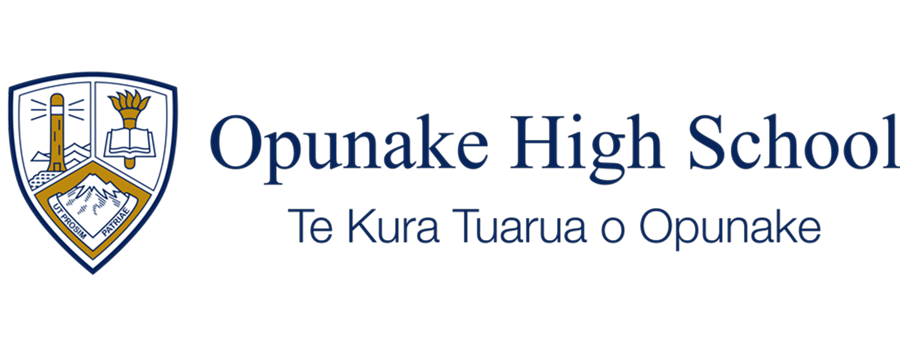Technology at Opunake is made up of five fields of practice within technology – Digital, DST, Engineering, Graphics/DVC, Hospitality. All of these have skills transferable not just within technology but across the entire curriculum.
Technology
Digital Technology
Digital Technology students in the senior school have a choice of doing unit standards or achievement standards. The achievement standards are focussed on the technology design brief and development. Students develop digital outcomes to meet a need or an opportunity. They work through the design process to develop their outcome.
Possible projects are generally developing websites where students learn html and css to code their own site. Others projects may include print, multimedia, film, game design or app development.
The unit standard course is predominantly focussed on essential skills for the workplace which includes advanced word processing, spreadsheet and publishing skills.
Junior Digital Technology offers students a wide variety of opportunities from digital video, vlogging, web design, developing print media outcomes and gaining essential computer skills.
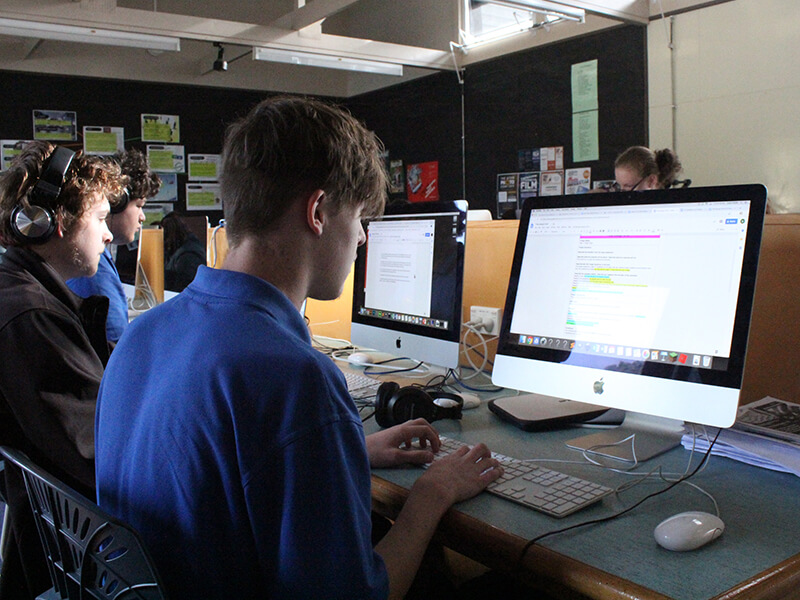
Engineering
Engineering is offered at Year 11 to 13. All courses have a high practical component. In Year 11 students will make a drill vice along with a second project they will design and make. Students can gain up to 24 credits.
Year 12 students make an engineering vice and fabricate a metal saw horse. The majority of the Unit Standard assessments involve assessment of practical tasks which are related to the projects. 18 credits are offered at this level.
Conversion of an old refrigeration unit into a compressor that is driven by a cordless drill is the Year 13 practical project. It involves welding and precise machining. Students gain both Unit and Achievement Standards with a total of 16 credits on offer.

Graphics / DVC
Graphics DVC (Design and Visual Communication) are courses on offer at NCEA levels, this course is for students interested in architecture and product design.
This year, Year 11 students are designing and drawing a homework desk. Basic skills from sketching to computer drawing and modelling are introduced and contribute toward credits.
The brief for Year 12 students is to design, draw and model a tiny house with aspects of the building influenced by a design era.
For our Year 9 & 10 students, basic graphics skills are taught alongside some of the design practice from the Art curriculum.
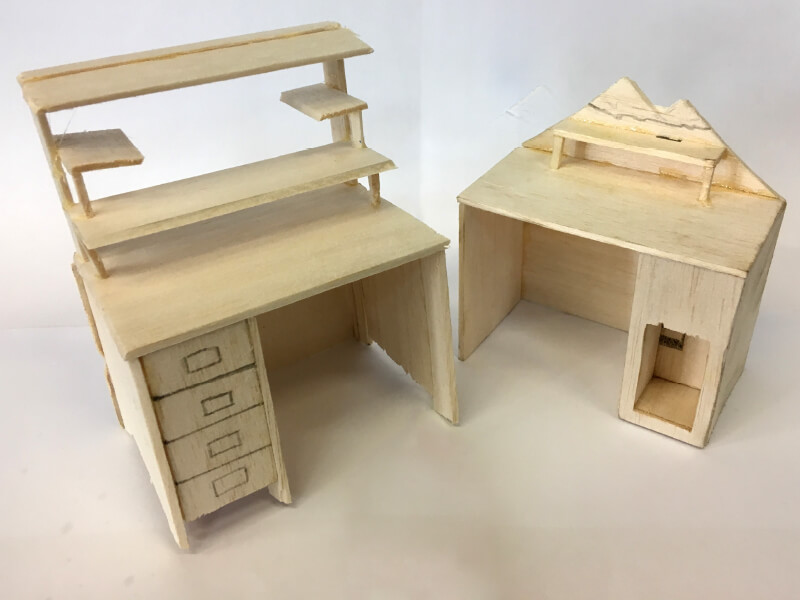
Junior Hospitality
In 2019 a range of food subjects are on offer each term. Each one is different and it is our aim to help students learn to cook using a variety of techniques and ingredients. This year we have offered a number of courses for the Home Economics student and they are listed below:
- Sweet Tooth has been designed to investigate the various uses of sweet food in our society – from dessert cooking through to cake making and decorating – Sweet Tooth covers it all. Students cook a range of cakes, muffins, biscuits, sweet treats and a healthy version or two of popular lunch box foods.
- Eat your way around the World is an immensely popular course. Students work in teams to research any of the countries that were not covered in our course from last year – International Foods. Teams then create a fictitious travelblog through researching popular tourist locations, significant food, landmarks and activities that each country has to offer. They present their to the class and each week and submit a recipe for the class to make that is popular in that country.
- The Great Opunake Bake Off is a course that is offered for students who have participated in one or more of the food classes over the course of a two year period. It is a challenge course, designed to get the students to work creatively to solve a food-based challenge. Passion, creativity and enthusiasm, a love of food and skills in the food-preparation area are put to the test.
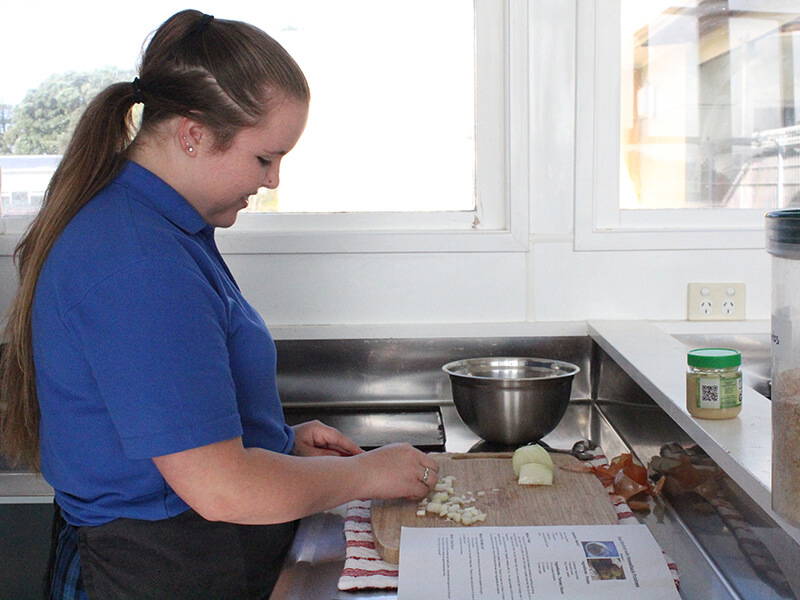
Senior Hospitality
Year 11 (Level One) Hospitality is an entry-level course that aims to develop industry-standard food preparation skills for students who are interested in this area or who plan to make a career in the Hospitality industry. Eight unit standards are offered to the students who will gain 20 credits upon successful completion of the course.
Year 12 (Level Two) Hospitality is designed to further develop those skills learned in Year 11 although students with no limited previous experience could also participate in this course successfully. There is an element of both practical cooking classes and theory classes that balance the two, creating specialised learning in both situations.
Year 13 (Level Three) Hospitality is for those students who have an in-depth knowledge of food preparation techniques and sound background knowledge in the area. At present we are looking to include a more practical aspect to this course which should be available from 2020 onwards. The class size is limited to 12 students.
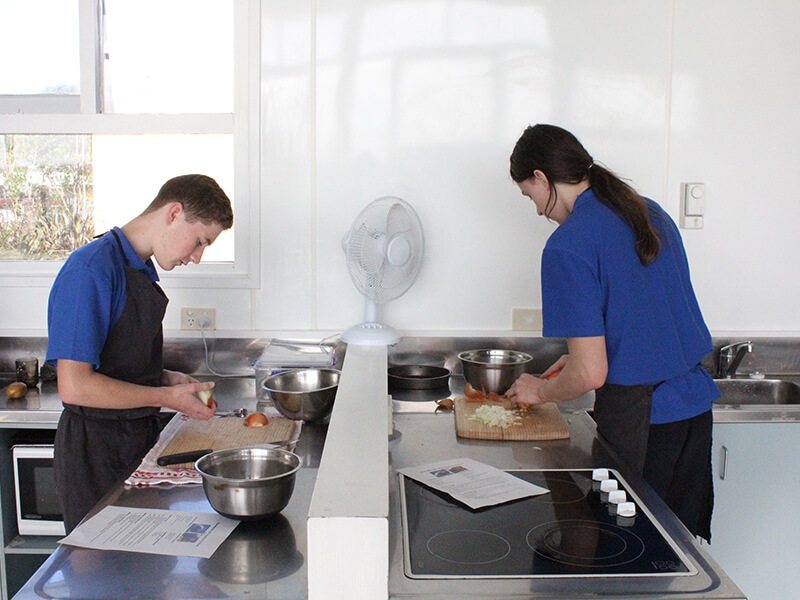
Junior Workshop
In the new Year 9&10 curriculum students can select the two different wood based programmes in the workshop: “PALLET and/or Build IT.”
Pallet Programme is where students research and design their own build. They can only use pallet or recycled timber as their main building material. The ideas are unlimited and diverse and the outcomes are individualised and amazing.
In the “Build IT” programme students are to build their own solid timber structure (Macrocarpa timber) of their own design/choice. Students have previously made a small piece of joinery or a small piece of garden furniture. Students learn how to draw in 3D (Visual Design) then they take their drawings (plans) into the workshop programme, where they develop a cutting list to guide the progress of their project. Within the project students learn how to use many different hand and power tools, apply different techniques and develop and carry out the build in a logical sequence.
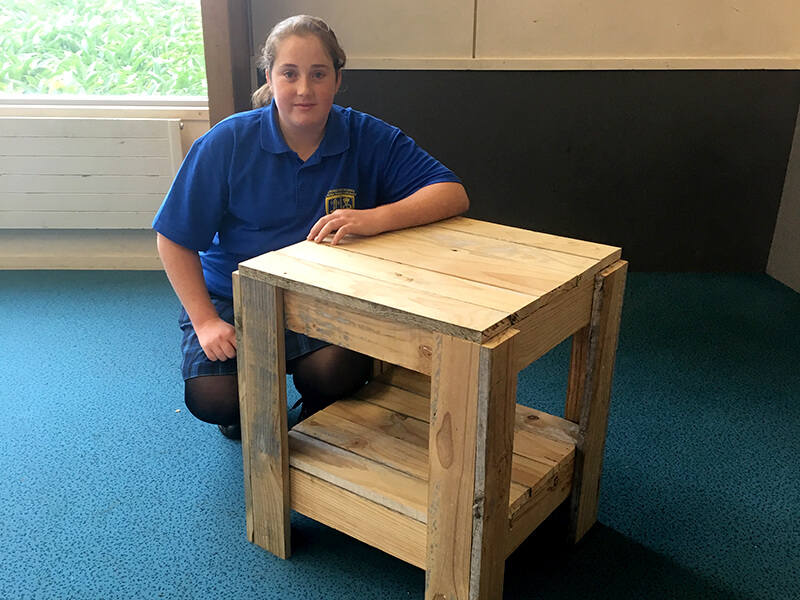
Senior Workshop / DST
The senior workshop (wood) programme takes students through a number of Level 1-3 BCITO Unit Standards.
Level 1: These students are to build their own stepladder using more technical workshop equipment, processes and joining techniques than used in the junior workshop programme. As part of the build the students learn how to draw in 3D, label parts using specific language and develop a cutting list. The workshop build is accompanied by theory B.C.I.T.O Unit Standards.
Level 2: These students are to build their own significant piece of garden furniture as their major workshop project. This allows students to negotiate their own project within this context. Written Unit Standards accompany the workshop build.
Level 3: These students are working on the B.C.I.T.O pre apprenticeship programme. They are encouraged to be in the Trades Academy “Makers” where they get practical skills to accompany their written tasks. If students are not in the “Makers” Academy they need to design and build a significant project in the workshop during regular class time.
